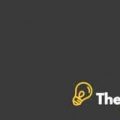Hedging Currency Risks at AIFS. Case Study Solution
Introduction
American Institute for Foreign Study (AIFS) organizes the educational and cultural exchange programs throughout the world. AIFS sends more than 50,000 students each year on academic and cultural programs worldwide. It was founded by Sir Cyril Taylor in 1964 with two main divisions; College Division, and High School Travel Division. AIFS receives all its revenues in American Dollars (USD), but its operational costs incur in other currencies, i.e. Euros (EUR) and British Pounds (GBP). AIFS always have currency risk because all the trips are out of the country for educational and cultural programs throughout the world. AIFS has a great feature that it publishes its catalog yearly and guarantees that its prices will not change before the next catalog.
Operational Divisions
The college division organizes to send university students during the academic year, or in the summer study programs. Courses in the program comprise of academic credit with most students traveling to countries with study programs like Europe and other parts of the world i.e. United Kingdom, Australia, Austria, the Czech Republic, France, Italy, Russia, South Africa and Spain.
On the other hand,High School Travel division, which is known as Council for International Studies (ACIS), organizes trips for High School students and teachers for understanding non-native culture of different parts of the world.
Hedging at AIFS
Christopher Archer-Lock is the controller and treasurer of foreign college division whereas,Becky Tabaczynski is the CFO of High School travel division; both counterparts have a daily discussion on the phone to hedge the currency risks associated with the exchanges rates. All costs of AIFS incur in and out of the United States, and it earns revenues in US dollars.On the other hand, AIFS promises the customers not to change the price, even when other currencies are getting stronger against the US dollar.
There is always a risk in the transactions to avoid significant losses in currency exchange rate. Moreover, AIFS carries out the Hedging activities prior six months for the College division and for High school division, the hedging takes place throughout.
Forward Contracts
Forward contracts are Foreign exchange market’s un-standardized contracts between two parties.It isa hedging tool to minimize the risk associated with underlying assets, and it is also used in currency transactions to hedge the currency conversion risk in future. It allows the contract buyer to purchase foreign currency at agreed rate on a specific date in the future. A forward contract allows companies to fix the exchange rate in present for future payments receivable in the future.
Option Contracts
On the forward contracts, the options are more flexible than forward contracts because they allow stepping back if underlying currency becomes strong in the market.Furthermore, the company will have the right to call, and contracts will have responsibility to buy the currency as agreed on strike price. i.e. Contract to buy Euro against US dollar on strike price say 1.22 in future in given time, now if the price goes up to 1.5 from strike price, then A will use call option to purchase the currency at agreed strike price of 1.22 USD, whereas if the price decreases, then A will have the right to step back from the contract.
Hedging Currency Risks at AIFS. Harvard Case Solution & Analysis
Economic Analysis
Currency Exchange rates depend on the performance of the economy of the country as well as on the Gross Domestic Product (GDP), and import and exports. Currency exchange rate depends on many factors such as import, export, Balance of Payments, and Foreign Cash Reserves.
US dollar is improving against the Euro, if we analyze the charts given in Exhibit 5-8. As the experts were arguing that a sharp USD movement might be imminent, therefore there will be a significant change in revenues that could increase the sales. Furthermore, the external environment threats have significant negative impact on the sales, such as terrorist attacks, military coups in the country, and civil war in the visiting country, these all factors negatively affect the sales, because no one will be ready for taking risk on for any educational or cultural exchange program.
Hedging Policies
1. Do nothing strategy
In this strategy, AIFS has nothing to do because if the current rate of USD against Euro remains with the projected rate, then there will null effect, howeverif it goes above that level, then it will have anegative impact, and if it goes down then it will have a positive impact................
This is just a sample partial work. Please place the order on the website to get your own originally done case solution.












